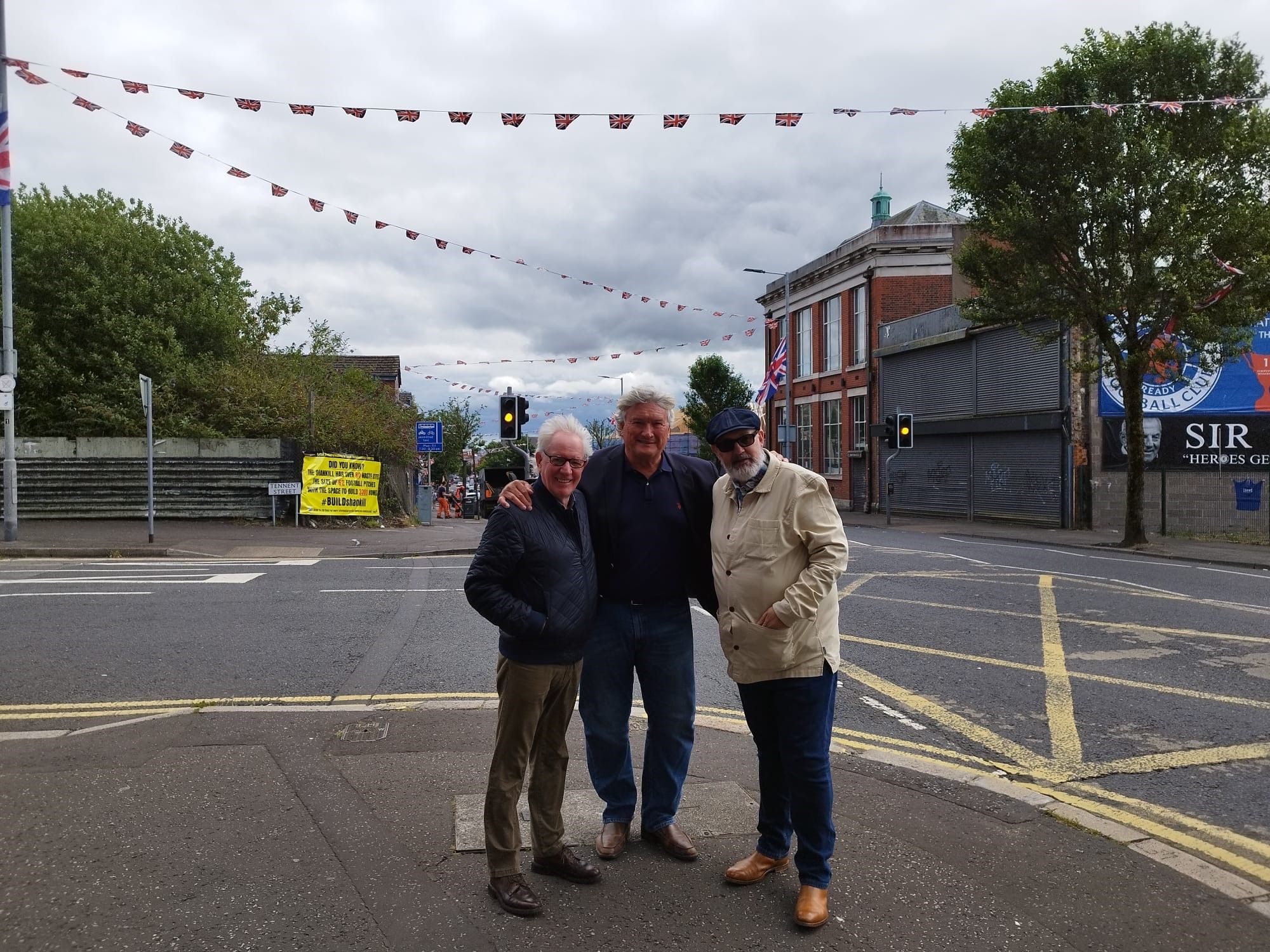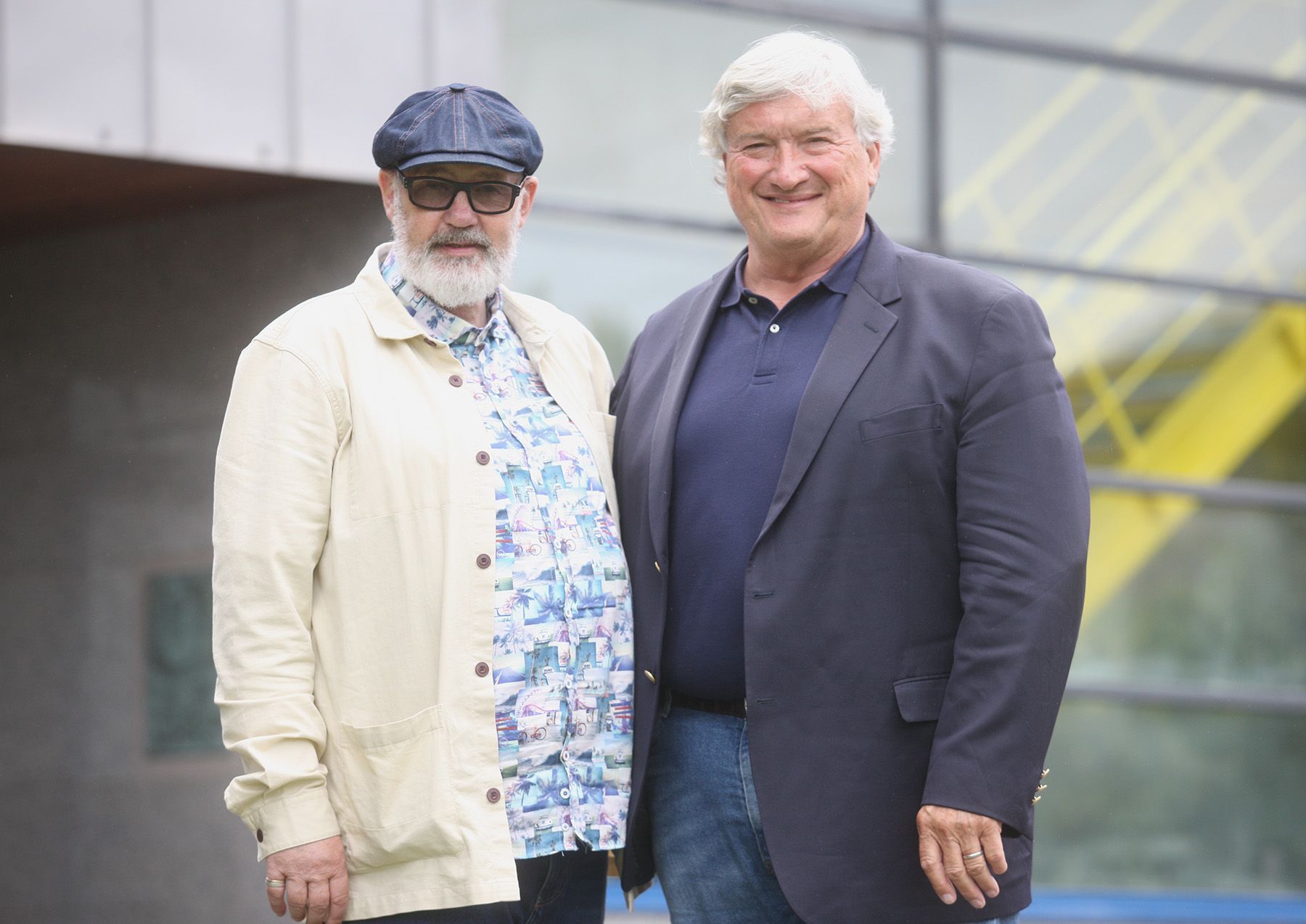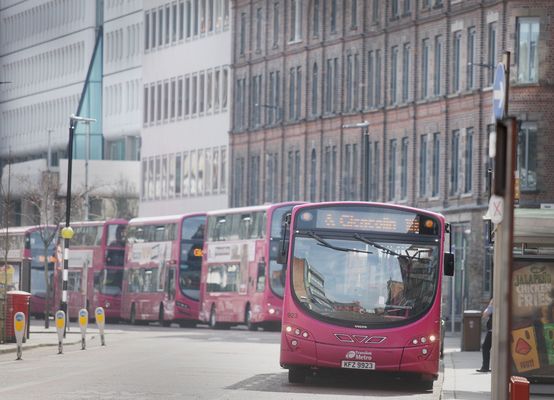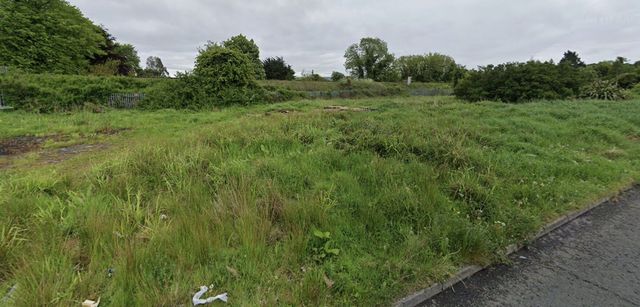In an increasingly polarised world, it can sometimes feel like no-one looks out for anyone else anymore. In a time of war, horrendous wealth inequality, record profits from companies who are destroying the planet and increasingly polarised politics, it can feel like society has totally forgotten compassion.
Not, though, Dr Jim Doty.
Professor Doty is one of the world’s top neuroscientists and is a Professor of Neurosurgery at Stanford University. A renowned figure in the field of ‘compassion science’, Professor Doty has revolutionised the topic, which proves that compassion is not only good for helping others, but it also is good for yourself, creating less stress, increased longevity and delivering better emotional and physical health.
Professor Doty was in Belfast on a whistlestop tour ahead of next year’s first International Science of Compassion conference. During this visit, he teamed up with Mr Mindfulness Frank Liddy (from this parish) to visit notable figures from both communities including Jackie Redpath from the Shankill and Billy Hutchinson from Mount Vernor. He also had tea and scones with the Lord Mayor Tina Black and immersed himself in Irish culture in An Chultúrlann on the Falls.
His visits confirmed for the former neurosurgeon and pal of the Dalai Lama that the Good Friday Agreement represented a major breakthrough and put society here on the "path of peace".
PEACE: Jackie Redpath, Jim Doty and Frank Liddy on the Shankill
Speaking on the upcoming conference, Professor Doty said: “This will be the first International Science of Compassion conference, held at Queens University. There’s a growing worldwide interest in compassion and we have around 75-100 centres focused on compassion. I felt it was time to hold an International conference on compassion, and I don’t think there could be a more appropriate place than Belfast. Especially as the conference is to be held next year on the 25 anniversary of the Good Friday Accords.”
Professor Doty is also author of the bestseller, ‘Into the Magic Shop’, a worldwide bestseller, published in 49 languages. Koren K-Pop band BTS used it as the basis for their third album ‘Love Yourself: Tear’, with a track on the album called ‘Magic Shop’.
“I would like to see programmes in schools which would include the understanding of compassion to teach children how to look at the world in a more compassionate way," says Dr Doty. "Often we tend to just focus on our own needs and our own issues, but we need to start saying,' yes I am concerned about myself, but it is possible, and better for me, if I have concern for other people'.”
Professor Doty says the academic research is in and shows that if you are kind and compassionate to others, it is extremely good for you.
“Compassion is the recognition of another’s suffering, with a desire to alleviate that suffering. You have to engage, and that will trigger your amygdala, the part of the brain which is responsible for attaching memories to emotions and controlling emotional responses such as fear, anxiety and aggression. When you engage compassionately with someone, it stimulates the pleasure centres in your brain, and releases xoxytocin, the love hormone.
"In short, when you care for others, it benefits you, but not just pleasurably. We have an autonomic nervous system, which functions below our levels of consciousness. It has two parts, the sympathetic nervous system, which controls the fight, flight or freeze response. The other is the parasympathetic nervous system. This is called the ‘rest and digest’ system. This is where we should live all the time.
"When you’re compassionate, you enter this system, and the results are really good. By being inclusive, open and thoughtful and caring, you can improve your heart function, your immune system, reduce stress hormones, and reduce the production of inflammatory proteins. If you live compassionately, it will increase your life expectancy.”
And the Stanford prof says happiness lies within.
“People look for happiness, as something which will happen to them, externally," he explains. "However, happiness doesn’t come externally; it comes internally, from within. It is only you who can determine your own happiness. For example, if I’m driving and someone cuts in front of me, I can get angry, and annoyed, and think this person is selfish. That’s my sympathetic nervous system in action. However, if I find out the person who cut me up is trying to get his wife to the hospital to have a baby, then suddenly I become understanding of why they cut in front of me. Understanding that you have the ability to determine how you respond to different situations can significantly alter your outlook, and make you far happier.”
Asked whether the world today needed more compassion, Professor Doty famously told Talkback's William Crawley, "F***, yes", prompting an apology from the BBC to sensitive listeners. In less passionate terms, he says compassion is a corner stone of a successful society.
“95% of people are caring, kind, and thoughtful, but in modern society, a small percentage of people make life worse for so many people, and often, these are people in politics. These people often aren’t driven by wanting to do the greater good, but by wanting to do what’s best for them. The most beneficial policies are the ones which are best for all of us, not just a select group.
"If you look at the worlds resources, there is plenty for everyone, but there is a false narrative that there isn’t enough."
Professor Doty’s interest in Ireland goes back to the year 1998, and included a close run-in with one of the very worst events which happened during the conflict.
“I first visited Belfast in 1998 with my daughter who was over doing a peace project. One of the places she wanted to visit was Omagh. We had a bit of trouble getting the date set down. Eventually, we got there on the 14 August, but had planned on getting there on August 15, which was the day of the Omagh Bombing. It spurned me to look into what could drive someone to do these sort of things, and to reflect on the challenges that arose from that.
"Everyone wants to be heard, to be accepted and treated fairly, and I hope the conference next year can look into how those challenges were tackled, to move towards creating a better society from the Troubles. The history here is long, and the final chapter still hasn’t been written in Belfast, but it does provide a narrative that can inspire people about the possibilities of peace."
Inspiring to speak with Dr James Doty about his visionary work & life this week. Thank you Frank & Jim @frank_liddy https://t.co/TSOWXUcMkj
— Cllr Christina Black (@CllrBlack) August 6, 2022
Asked if he had any advice for compassion for people in their daily lives, Professor Doty stated, “It is very easy to think that you don’t have the power to change bad situations, but everyone, everyday has the ability to be able to improve someone’s life. If you see the world through being engaged to improve people’s lives, if each of us can be a little more thoughtful, compassionate and kind, then that can improve everything.”







